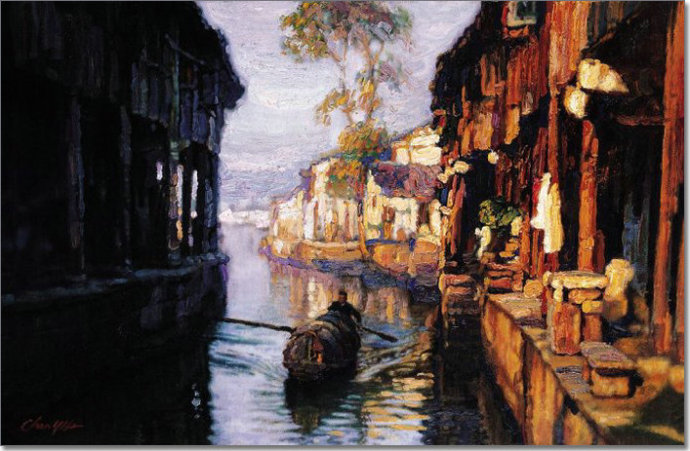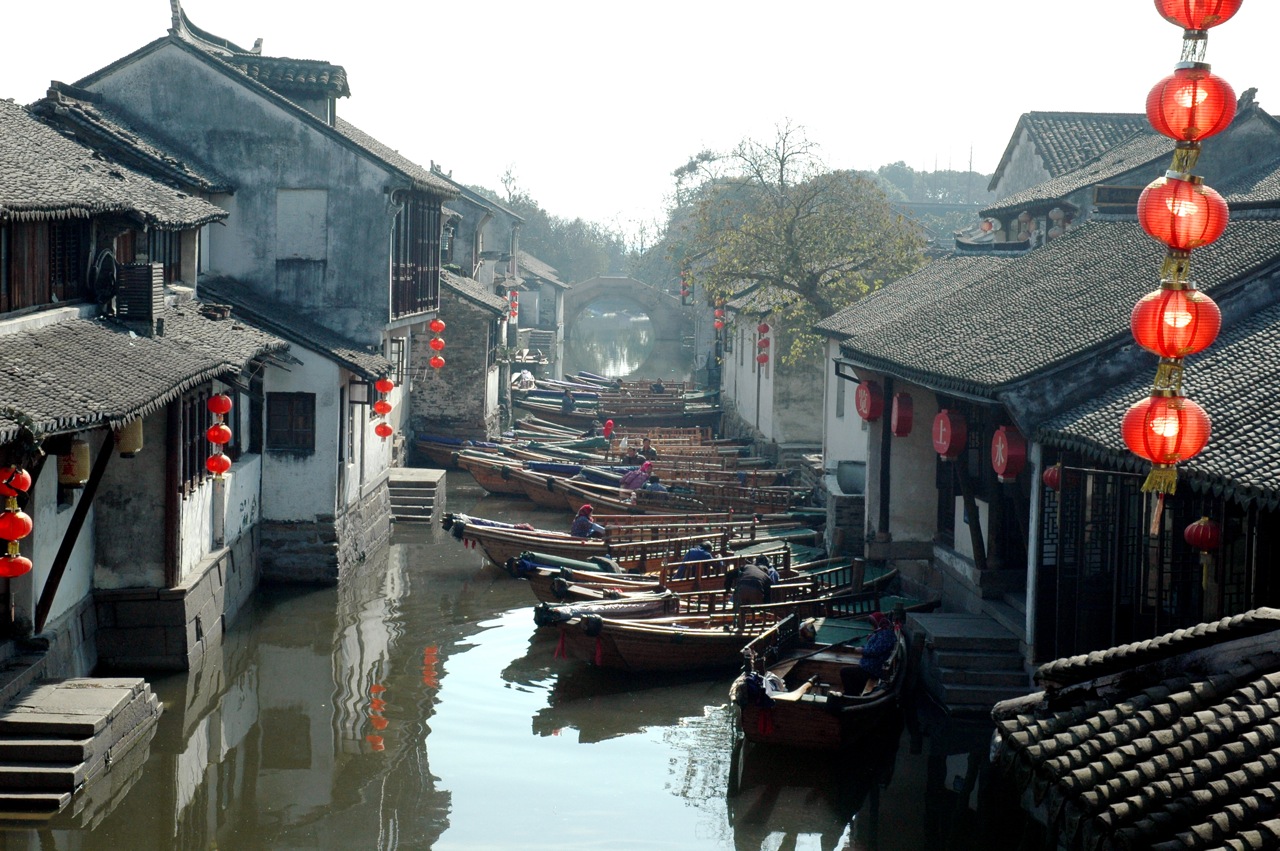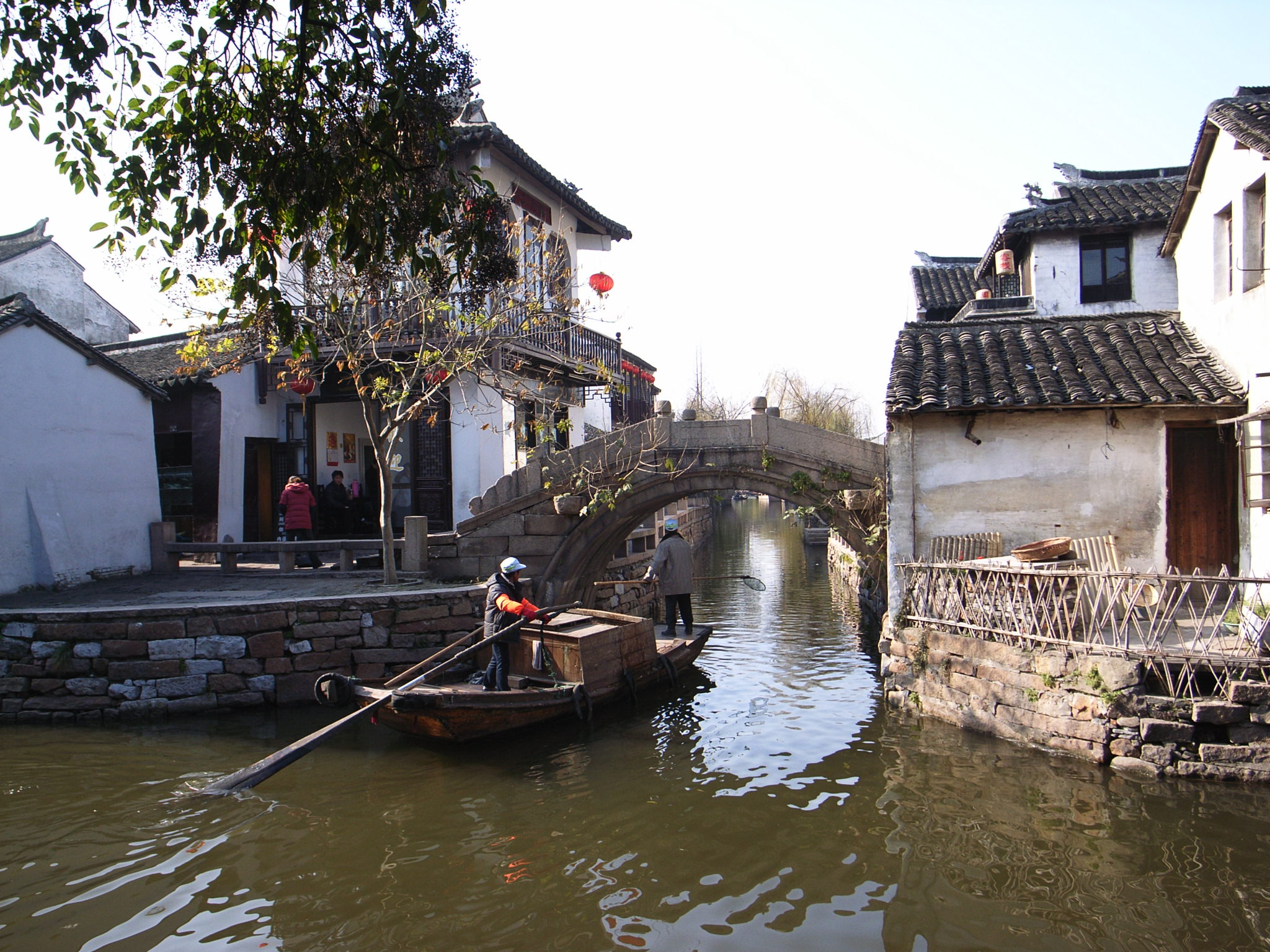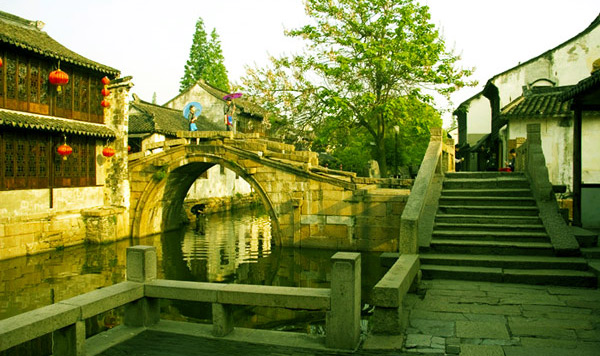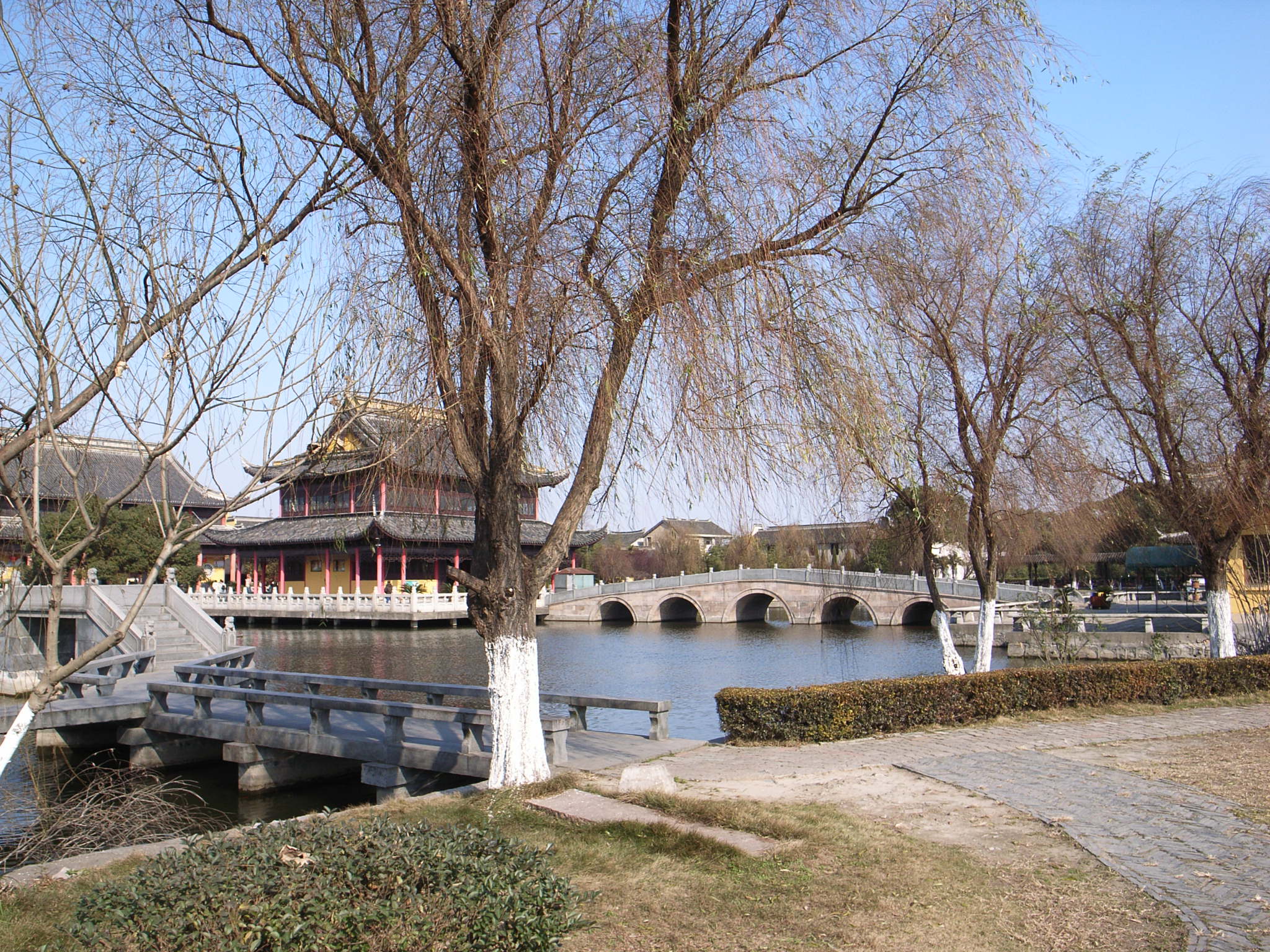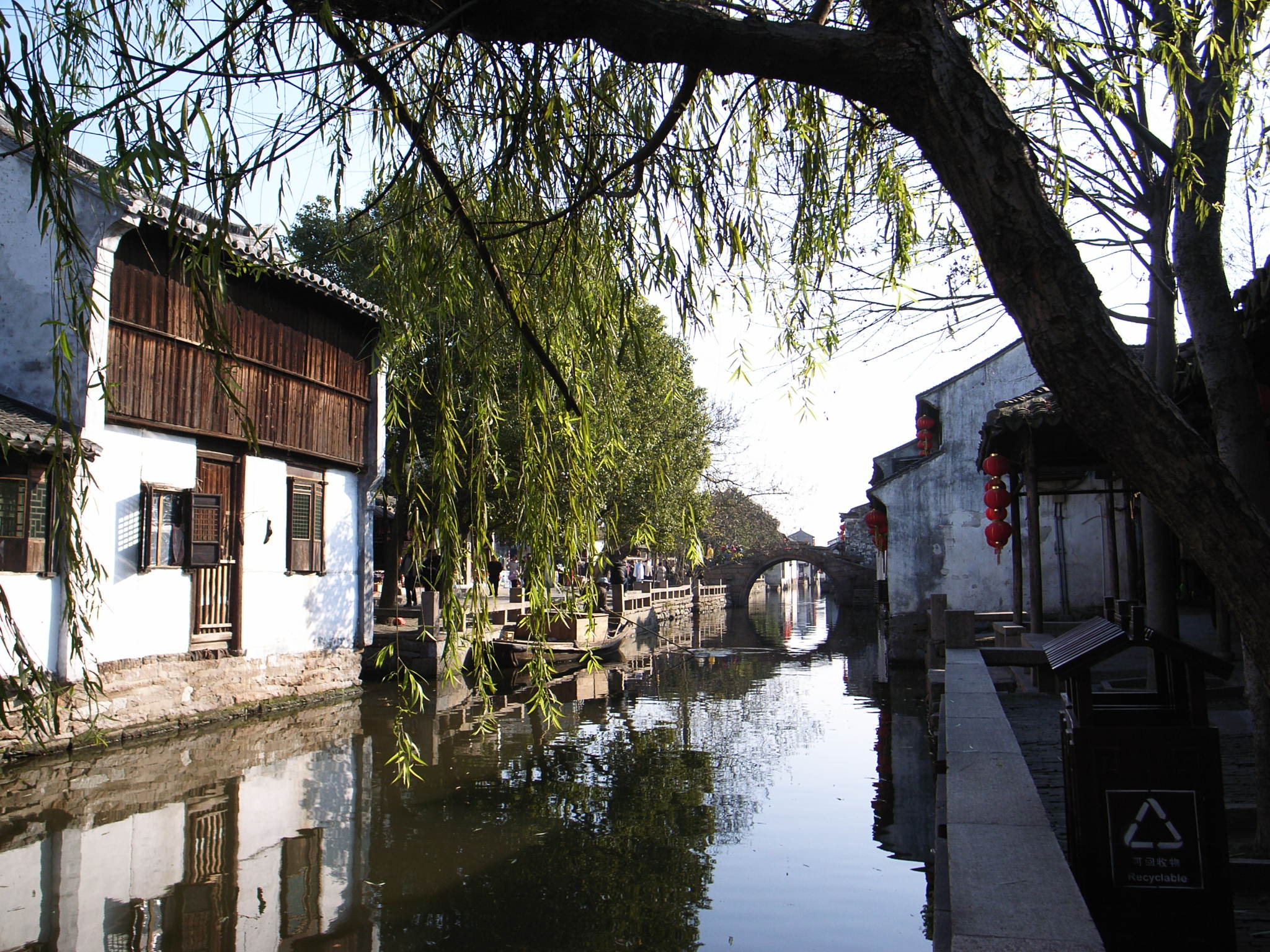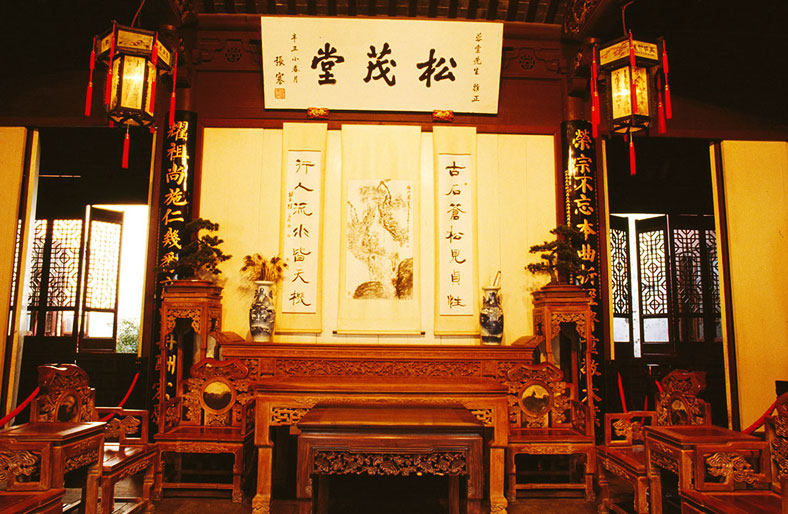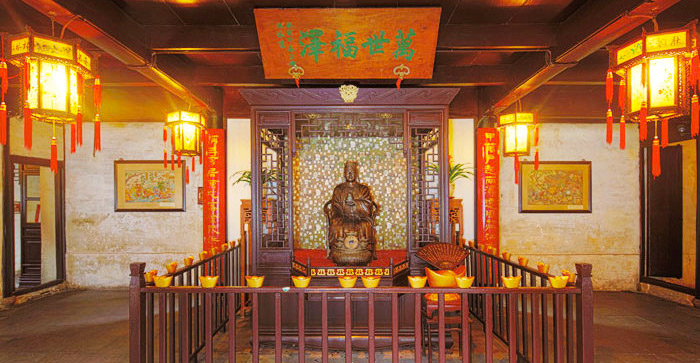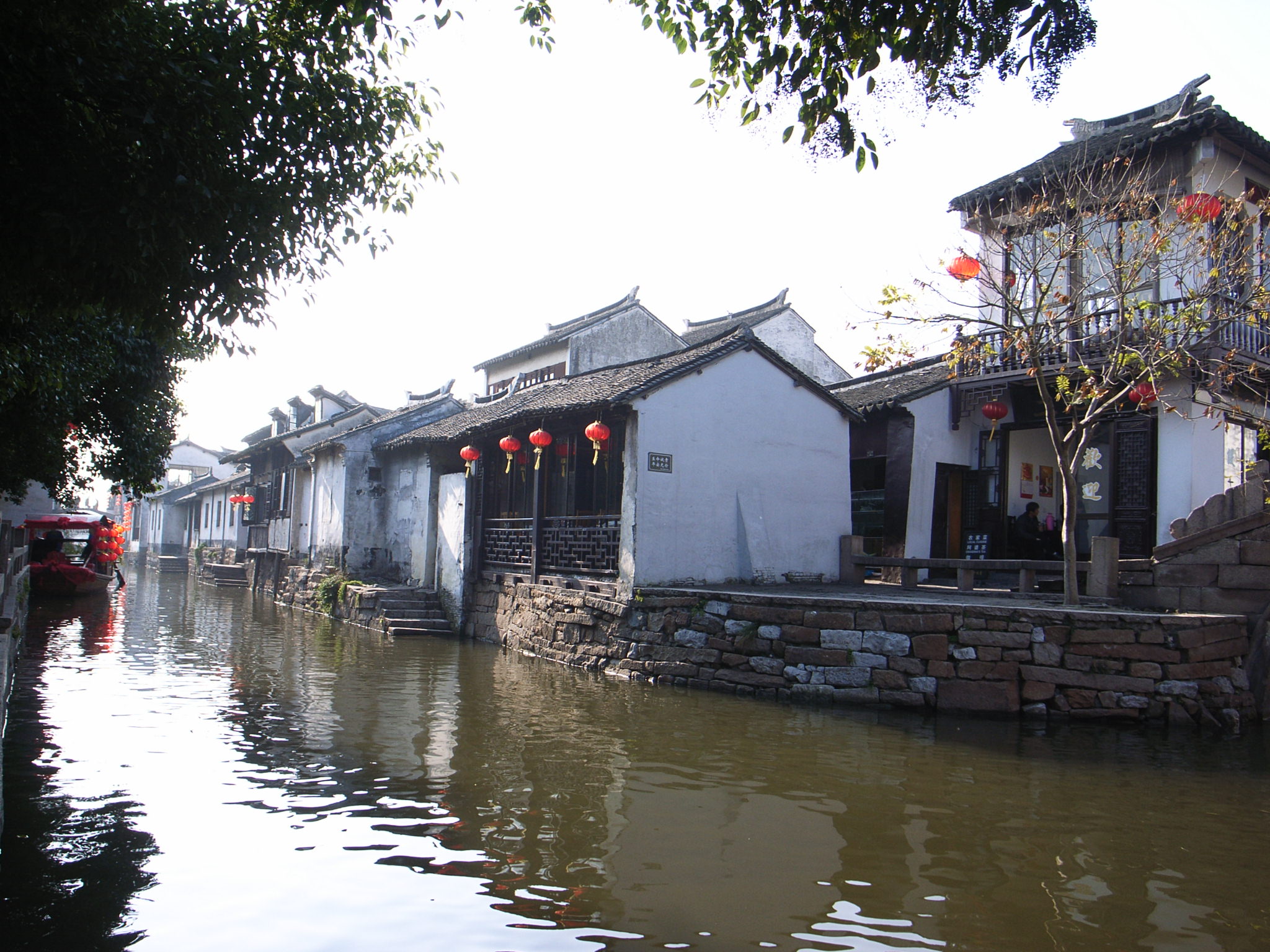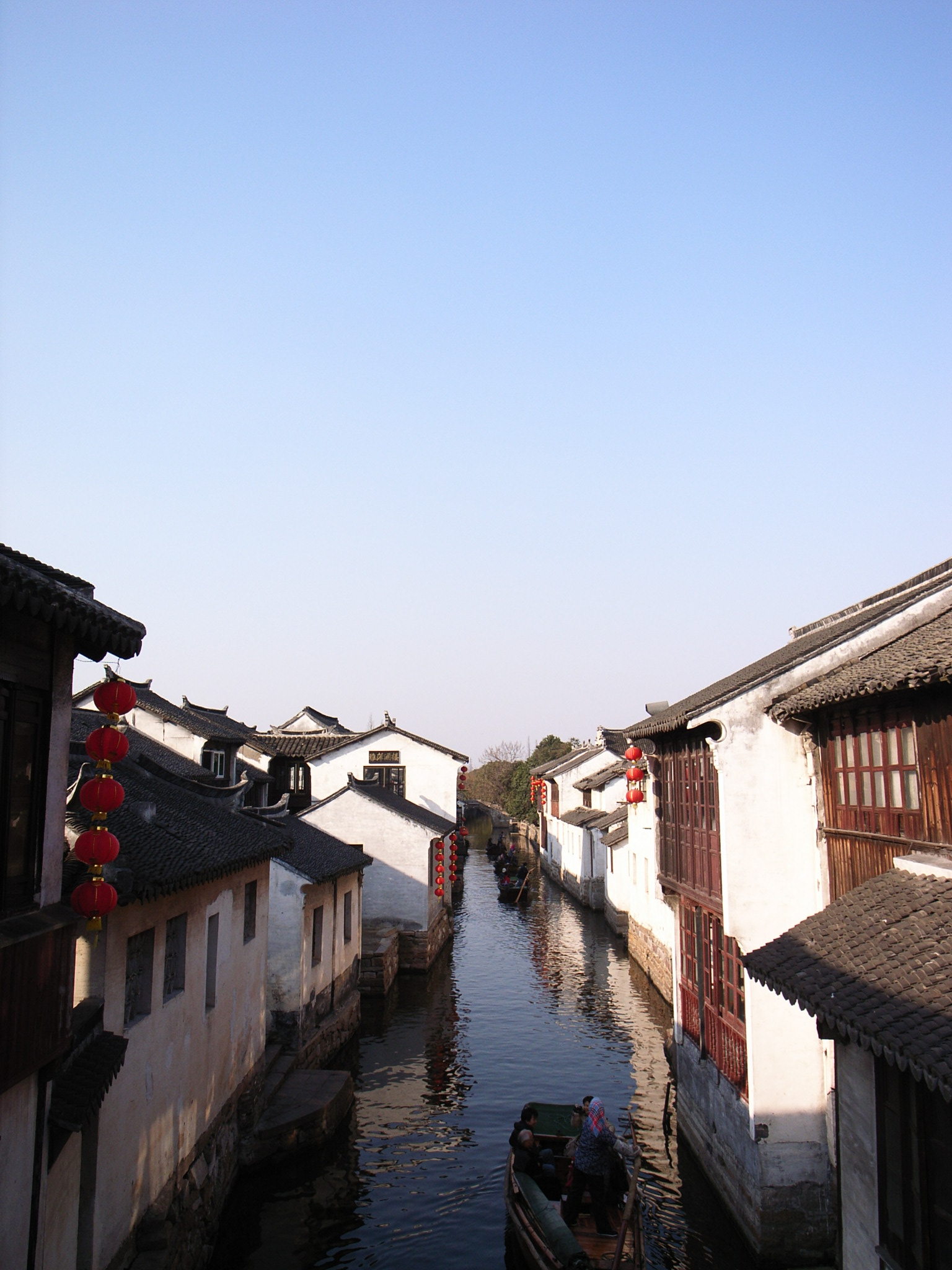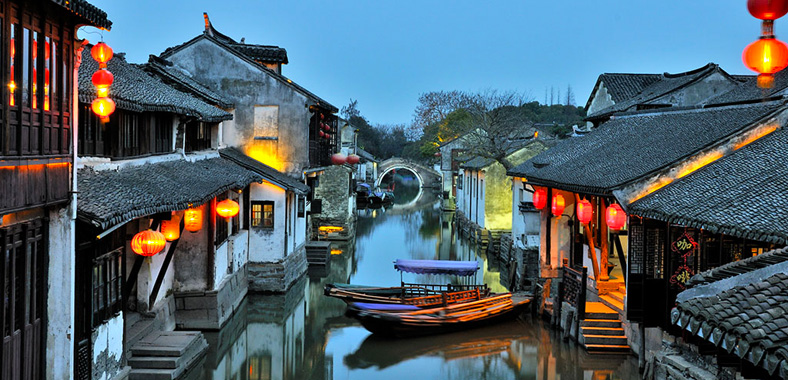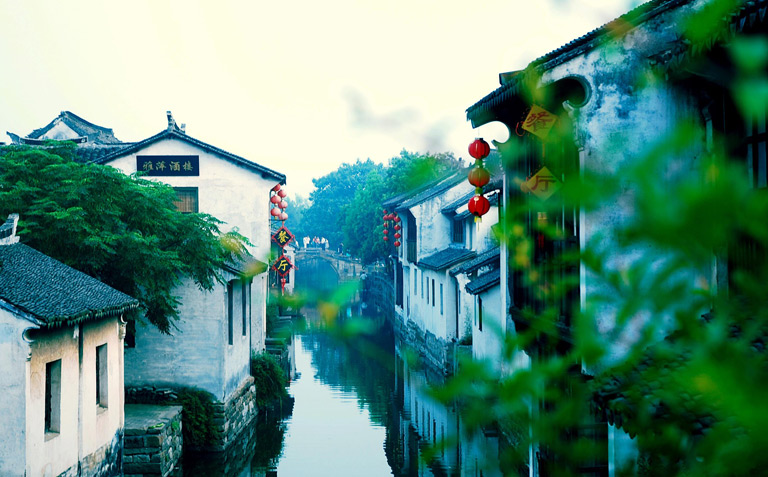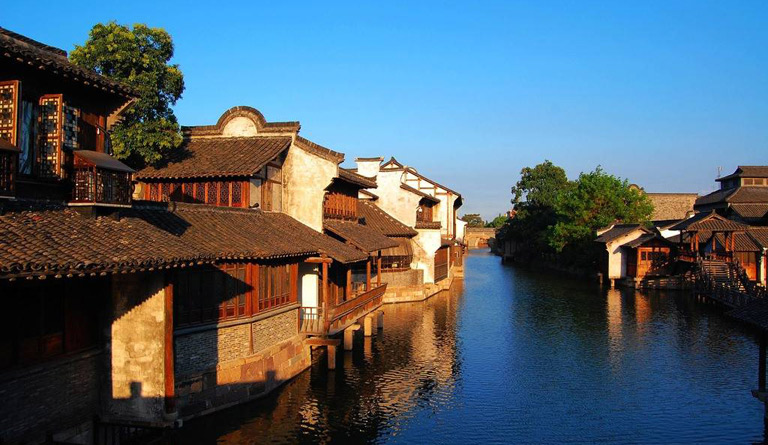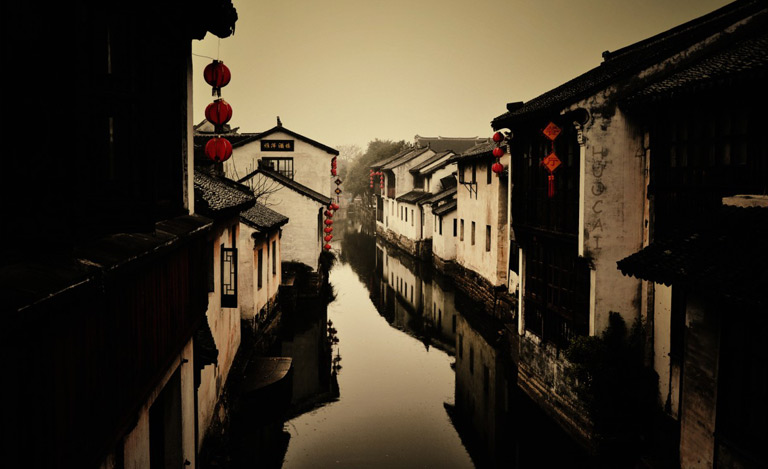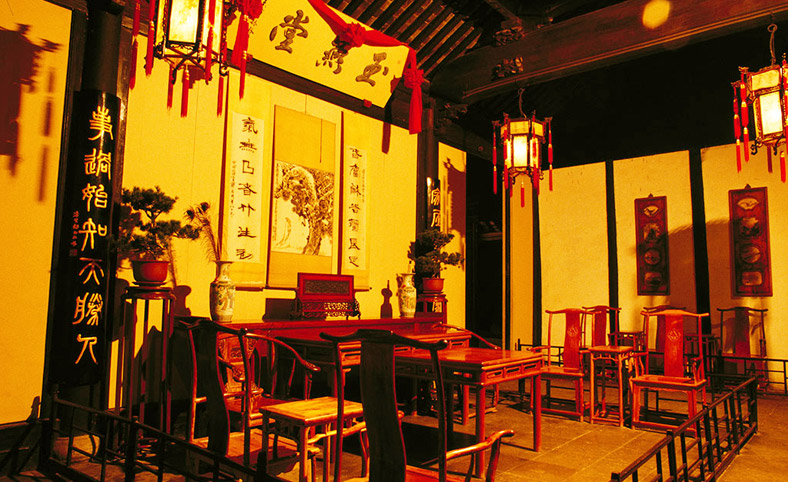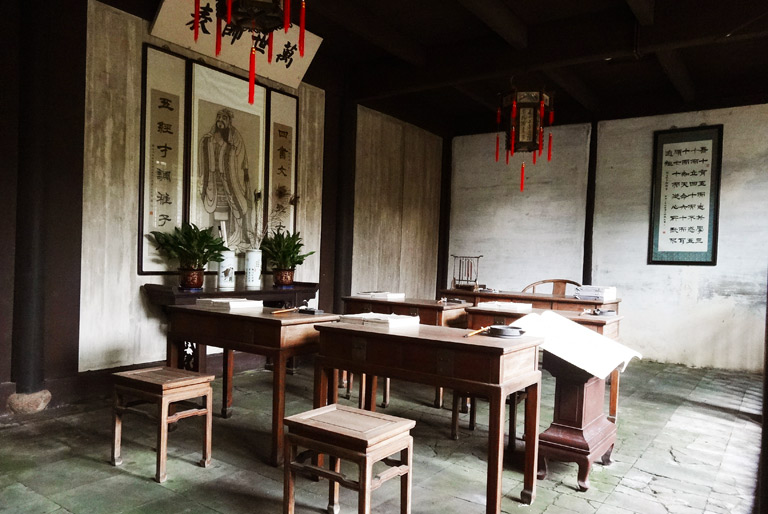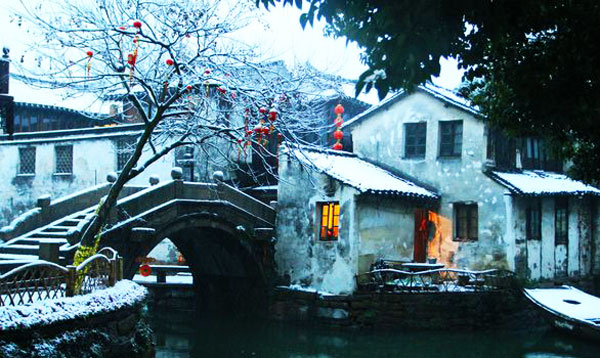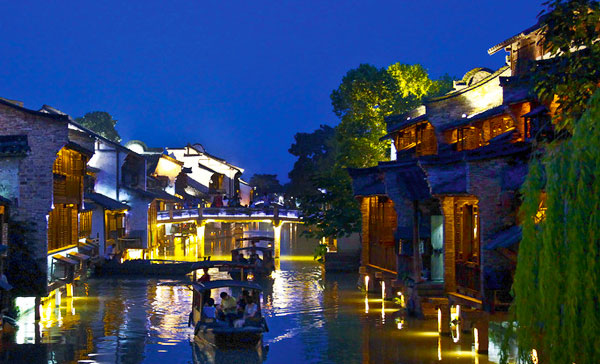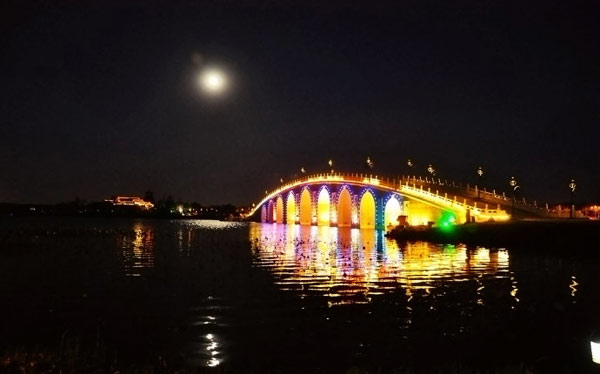|
Interesting Places |
||||||
| Zhouzhuang Zhouzhuang, a famous water town in Southern China, is located in Kunshan city, Jiangsu province.
|
||||||
| Zhouzhuang
is a town famous for its canals in Jiangsu province, China. It is
located within the administrative area of Kunshan, 30 km southeast of
the city centre of Suzhou. Zhouzhuang is a popular tourist destination,
classified as a C- scenic area by the China National Tourism
Administration. It is one of the most famous water townships in China,
noted for its profound cultural background, the well preserved ancient
residential houses and the elegant watery views. It has been called the
"Venice of the East". |
||||||
|
Double Bridge (Shuang qiao) Zhouzhuang is surrounded and divided by lakes and rivers. Many stone bridges cross the rivers, showing distinctive views of the water-town. The Double Bridges, which are Shide Bridge and Yongan Bridge, are the most famous and are considered the symbol of Zhouzhuang. Built in the Wanli era (1573–1619) of the Ming Dynasty, the Double Bridges are located in the northeast of the town. Shide Bridge is east-west and has a round arch, while Yongan Bridge is north-south and has a square arch. Crossing the two crisscross rivers (Yinzi Creek and Nabeishi River) and connecting at the middle, the Twin Bridges look like an old-style Chinese key. In 1984, 38 canvases of the notable painter, Chen Yifei, were exhibited in a New York gallery of Armand Hammer, chairman of Occidental Petroleum Corporation. "Memory of Hometown", which depicted the Double Bridges, was one of the items on display and has gained the world's attention for Zhouzhuang. The painting was chosen to be the first-day cover of the United Nations' postage stamp in 1985. ~ Wikipedia The Double Bridge (双桥) actually refers to Shide Bridge (世德桥) and Yongan Bridge (永安桥) at the center of Zhouzhuang. First built during 1573 AD and 1619 AD, these two bridges link together like a key in ancient China, so, the bridge is also called Key Bridge. Also, the Double Bridge is the best place to feel the ancient charm of Zhouzhuang. With the gem-like water and lush trees, you can take a boat to appreciate it and enjoy passing through under the bridge. Moreover, the Double Bridge is well-known for the oil painting of Chen Yifei (陈逸飞) who is a famous painter. After his painting of Zhouzhuang exhibiting in the gallery of Armand Hamer the US, the American people were marveled at the idyllic land of China water town. And in 1985, the painting was chosen to be the pattern of the first-day cover of the United Nation, favored by people from all fields. ~ Source: chinadiscovery.com
Chengxu Temple
Main article: Chengxu Temple Standing on Zhongshi Street which is opposite to Puqing Bridge, Chengxu Taoist Temple was built during 1086-1093 of the Song Dynasty and also known as Sanctity Hall (Shengtang Hall). After several periods of expansion, it is one of the most famous Taoist temples in Wuzhong Region. In an area of 1,500 square meters (1,800 square yards), Shengdi and Doumu halls, Yuhuang, Wenchang and Shengdi pavilions are pieces of Taoist architectures. ~ Wikipedia
Fuan Bridge
Located at the eastern end of Zhongshi Jie, Fuan Bridge was built in 1355 during the Yuan Dynasty. The unique trait of the Fuan is the consummate combination of the single-arch bridge and the bridge towers. ~ Wikipedia Shenting (Shen's) House Built in 1742 and located at the southeast side of Fuan Bridge, Shenting House was the private property of the descendant of Shen Wansan, the first millionaire of Jiangnan (South of Yangtze River) in the early Ming Dynasty. The whole architectural complex is of the Qing's style and occupies an area of more than 2,000 square meters (half an acre). Over 100 rooms are divided into three sections and each one is connected by arcades and aisles. The first is the water gate and the wharf, where Shen's family moored boats and washed clothes. The middle part includes the gate tower, the tearoom and the main hall. Bricky gate tower carved with lively and ingenious figures which tell the historic stories or show the good wishes, make it a rare artwork. Tea room and main hall are places for serving guests, and the furnishings here are all very elegant. The last section is the two-storied dwelling which consists of several buildings which are quite different from the main hall, more comfortable and refined in pattern and atmosphere. The painted sculpture of legendary Shen Wansan is in Datang Tower; cultural relics including ancient folk instruments are exhibited in Xiaotang Tower and Back Hall. ~ Wikipedia Shen’s House - Shenting The Shen’s House (沈厅), in this residence of more than 2000 square meters, was built by the decedent of Shen Wansan in 1742. Nearly every visitor would go to Shen’s House to feel the life and history of the very wealthy person in Wu Kingdom. Going inside, you can see the wide and magnificent main hall, and raise you head, the hidden window is right there, and that was for the lady selecting her husband in ancient China. Also, you can find abundant fine decorations on the doors, windows, etc. like golden carving of animals and flowers hollow engraving of blossoms and figures, etc. Besides, the statue of Shen Wansan and a glittering treasure pot are there in al hall. It is said that the pot can bring luck of making money to people, so visitors usually throw a coin to the gold ingot to get the good amassing fortune. And you can walk or stand in the stone door of ancient Chinese coin to get more fun. ~ Source: chinadiscovery.com
Milou Tower
Once called the De's Tavern, Milou Tower perches next to Zhenfeng Bridge which is at the southwest corner of Zhouzhuang. It is famous for being a rallying place of the literators in old times. ~ Wikipedia
|
||||||
Located in Suzhou, Zhouzhuang is not only the “No. 1 Water Town in China” but also one of the “top ten tourist attractions in China favored by the European people”, so you can feel its long history of about 1000 years and admire the authentic features of water town in regions south of the Yangtze River in China.
|
||||||
Zhangting House
It was built by Xu's family in the Zhengtong era (1436–1449) of the Ming Dynasty and bought by Zhang's family in the early Qing Dynasty. Located to the south of the Double Bridges, Zhangting House has more than 70 rooms and takes up about 1,800 square meters (less than half an acre). With Ruojing River flowing through, Zhangting House is a dapper and graceful residential house; has a tranquil courtyard and pond. Deep halls all represent the life of the quondam owner. ~ Wikipedia Zhang’s House - Zhangting The Zhang’s House (张厅) was built in Qing dynasty and originally named
Yishuntang (怡顺堂). It renamed Zhangting (Zhang’s House) after made over
to a person whose family name was Zhang. Built within the 1800 square
meters wide area and carved beams as well as painted rafters, Zhang’s
House was regarded as luxurious at that moment. Moreover, it is very
interesting to imagine the scene of boats passing by the door of the
house in the past for the special location and featured design. In the
backyard, there is a little garden with dancing bamboos and Chinese
roses. You can stroll on the winding path to enjoy the scene of river,
and also, you can wear the costume in Ming and Qing dynasty to play the
historical role in the quiet garden and experience the daily life of
ancient people in Zhouzhuang. In the ancient old-style private school,
you can see very antique desks and seats, which shows the high pursuit
of knowledge of the host who wanted to give advanced education to his
children. ~ Source: chinadiscovery.com
|
||||||
| Related Links |
||||||
| FAIR USE NOTICE: This page contains copyrighted material the use of which has not been specifically authorized by the copyright owner. Pegasus Research Consortium distributes this material without profit to those who have expressed a prior interest in receiving the included information for research and educational purposes. We believe this constitutes a fair use of any such copyrighted material as provided for in 17 U.S.C § 107. If you wish to use copyrighted material from this site for purposes of your own that go beyond fair use, you must obtain permission from the copyright owner. | ||||||
|
|
